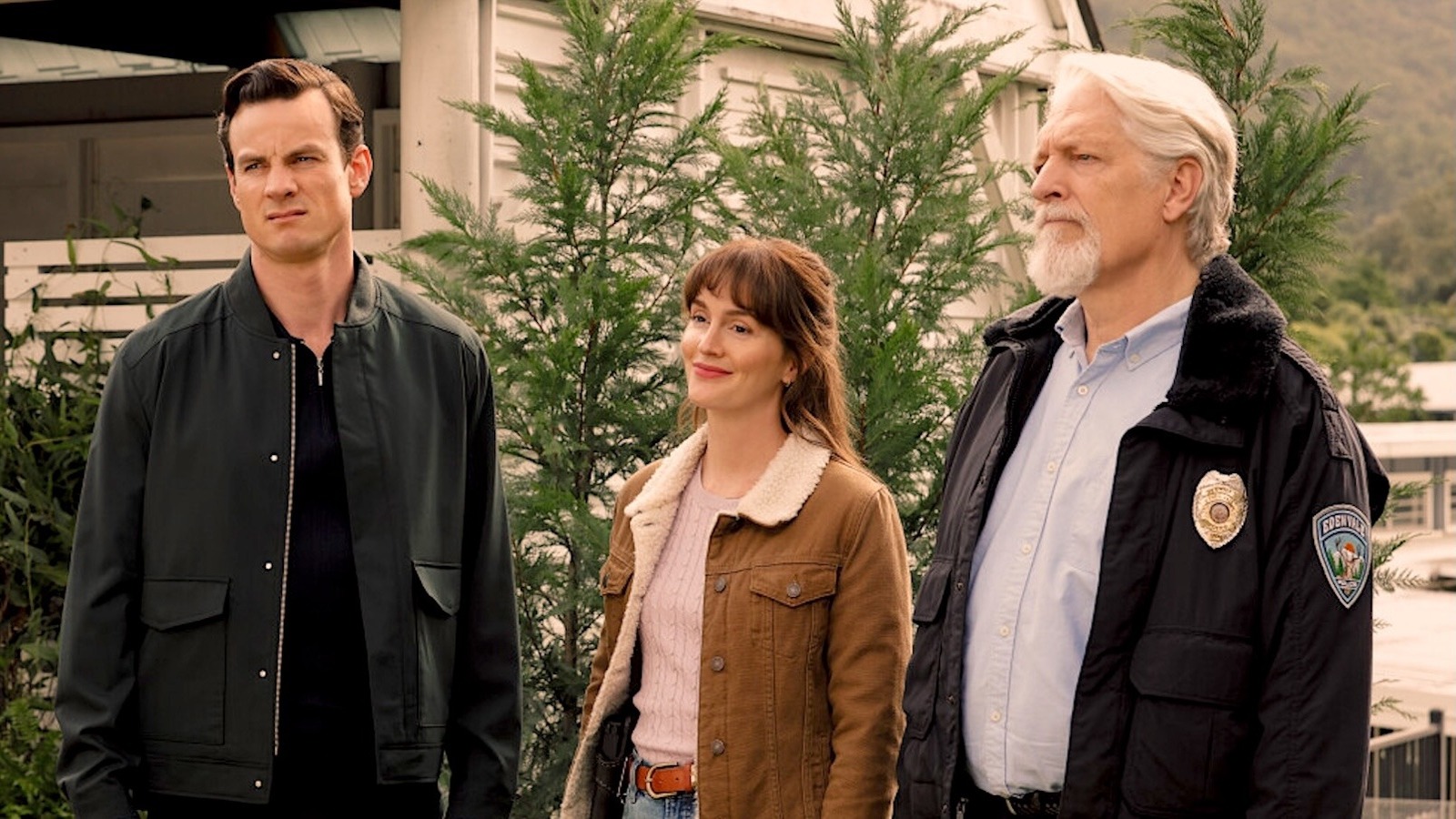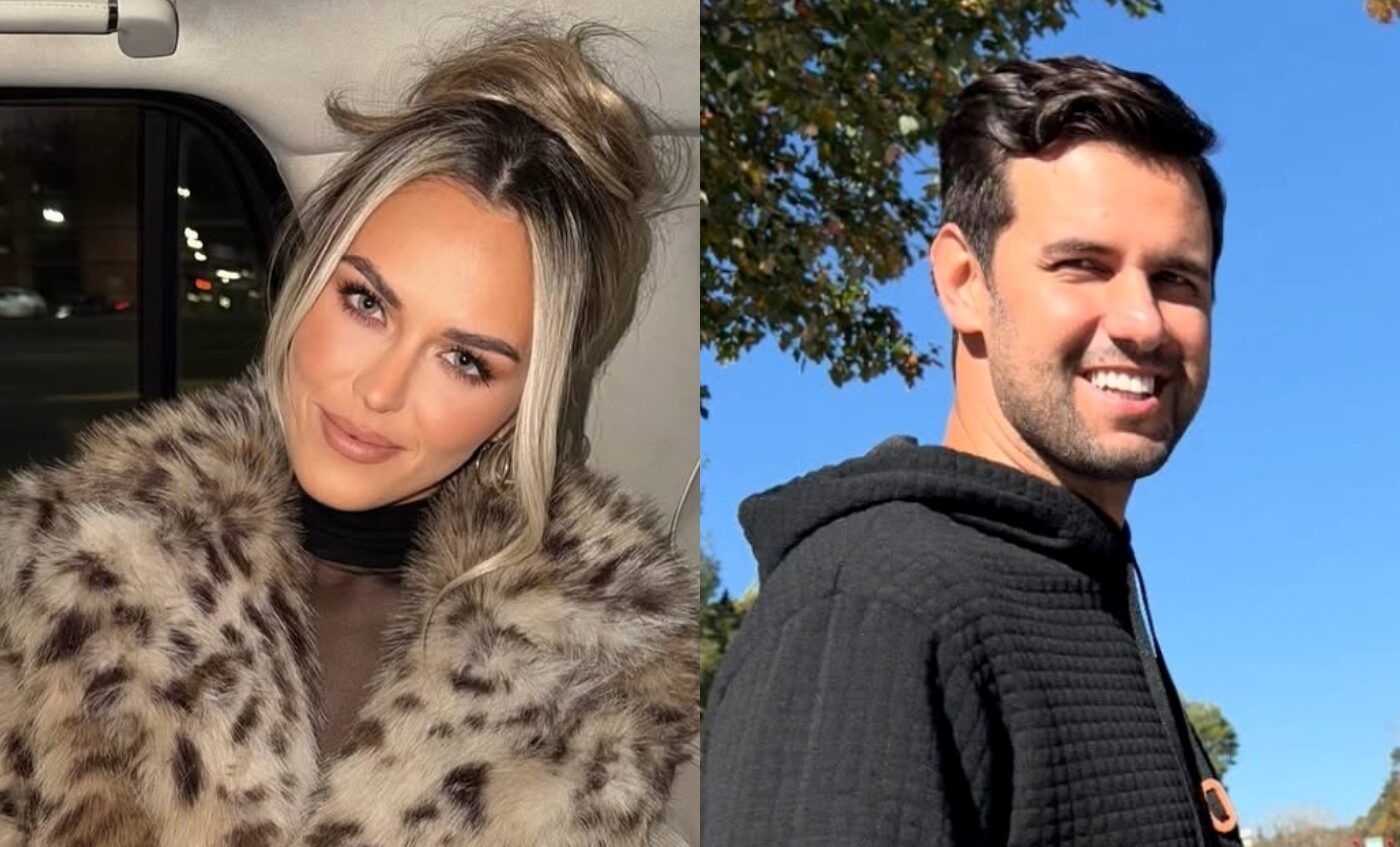TV Fanatic recently had the chance to catch up with talented actor Clive Owen to discuss his upcoming role as venerable detective Sam Spade in the AMC series Monsieur Spade.
The series follows the detective well after he metaphorically hangs up his detective hat and settles down in France. Is Spade really the type of man who would let a good mystery go unanswered? There wouldn’t be a series if he were.
Learn how Owen feels about the incredible honor of stepping into shoes previously worn by Humphrey Bogart and much more with our interview below.
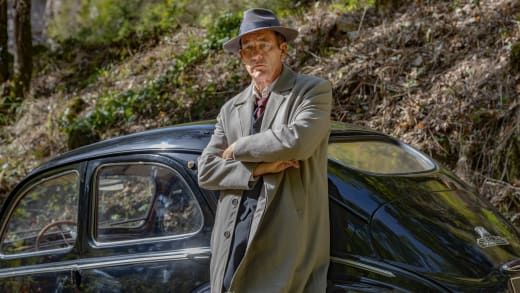
Thank you. Hi, Clive, how are you?
Hi, very good. How are you?
I’m good, thank you. I’ve admired your work for a long time.
Thank you.
This role was especially fun.
Great.
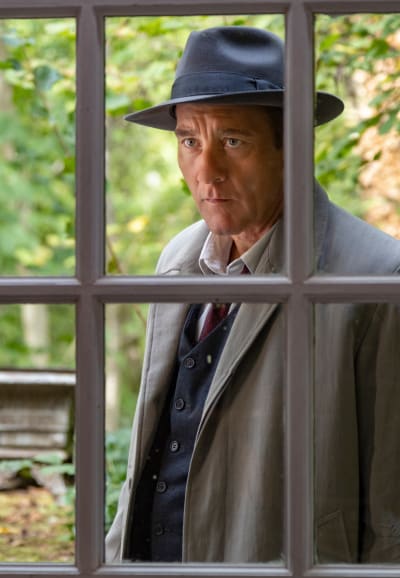
How did you physically and emotionally prepare for the role, especially considering his age and the experience of the character?
I immersed myself in all things Humphrey Bogart, to tell you the truth.
It was a bit of a dream job for me because I’m a huge Bogart fan, and I knew The Maltese Falcon really well, that movie, and a lot of Bogart movies, and so I just sort of immersed myself — reread the book and just threw myself into that kind of [thing].
It’s interesting because, although it’s set in the sixties, it’s very much a character from the forties and on.
So I sort of drowned myself in that kind of world and went back and looked at a lot of movies at that time, listened, and did a lot of work with my voice, trying to get the same rhythm and tone that Bogart had.
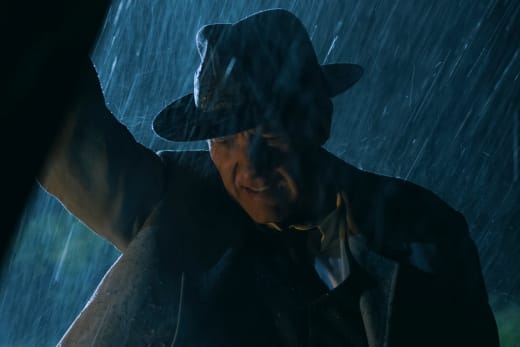
What does it feel like to have the opportunity to step into a role as iconic as this, especially one with an actor that you so admired?
Yeah, it was actually a joy because Scott Frank is such a good writer.
I remember we had a meeting before we started, and I said, “Look, don’t freak out about this because I’m not going to do a bad impersonation, but I’m listening to a lot of Bogart, and I’m really concentrating on the rhythms and the speed with which he talked, and really, that’s my focus.”
And he said, “That’s so perfect because I couldn’t write a line for Spade in this without thinking of Bogart saying it.” So, we were both completely on the same page when it came to that.
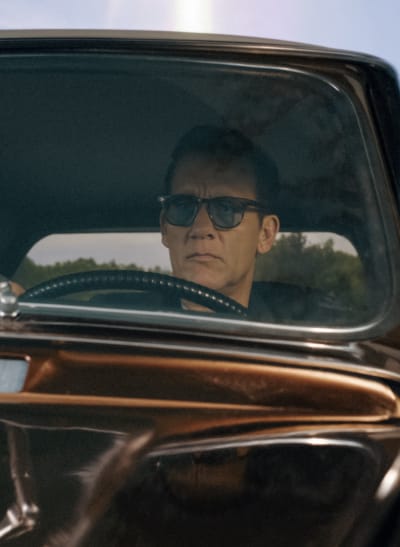
And what did he think about how you had achieved that same cadence, et cetera?
Yeah, I think he liked it. We just started working. He’s such a top writer that he completely nailed the rhythms and the sort of speed of thought of that kind of dialogue.
There was a lot of work I had to put in, but it’s like driving a really fantastic car. It was so beautifully written that you just sat in it and played it and were like, “Oh, he’s nailed this kind of tone and period.”
Yeah, and I think you did as well. I could see Humphrey Bogart saying the same lines in the same way that you did, which is saying something.
Thanks. Thank you.
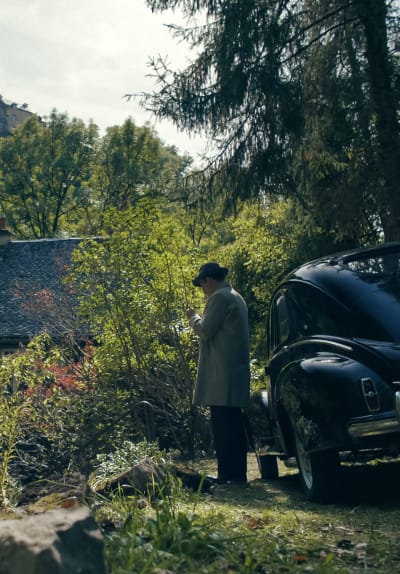
What personal touches did you add to this iconic role?
It was all really in the writing. I had lots and lots of meetings and talks with Tom and Scott, and we poured through the scripts in complete detail and went through everything.
But, to be honest with you, when you’ve got writing this good, you do less work than you would on something else because it’s kind of clear. The one thing about Scott Frank’s work, both as a director and a writer, is that he has such a clear intention all the time.
When you see his work as a director, where he puts the camera, and with his writing, it’s super clear what he’s intending. It’s very, very clever, and it’s a very high level, but there’s a clarity of intent about it, which means, for an actor, it’s about committing to that and not trying to be too clever with it.
His rhythms are great, so you don’t play with them too much, and it was a real joy working with his language.
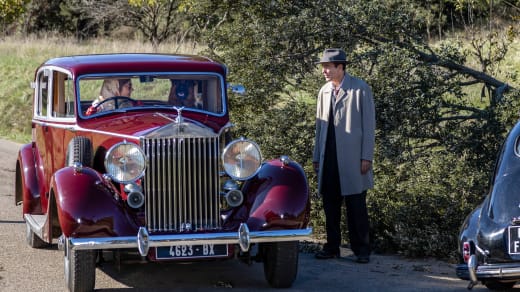
What do you find the most challenging aspect of stepping into the shoes of this well-known and beloved character at this particular stage in his life?
One thing I realized when I really dug into Bogart was that you think he’s kind of got an ease and a laid-back quality to him, but he actually talked really fast, and he’s super, super nimble and quick, but has an ease about it, which makes you think that it’s sort of almost on the back foot.
Scott wrote some scenes with a lot of dialogue in, and it was really about working it so you could really rip through it, but without making it look like hard work.
So there was an ease to doing a lot of dialogue and making it flow easily and not look effortful. And I suppose that was one of the biggest challenges and something that I really sort of spent a lot of time thinking about.
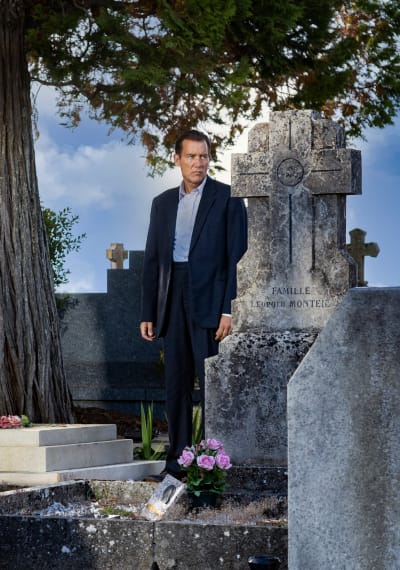
How would you describe this Sam Spade?
I think he’s really, really faithful to the original Dashiell Hammett, and we’ve just moved him on and put him into a different environment. I think it’s really tricky when you do noir because we think we’ve seen it all before.
So you can very easily fall into familiar patterns that people sort of very quickly get comfortable with, but by throwing him into a different environment, he’s a fish out of water; it really helps.
It means you can be classic with him because he’s having to adjust and adapt to a completely new environment. So I thought that it was very clever of Scott and Tom to throw him into the south of France in the sixties and take him out of America in the forties.
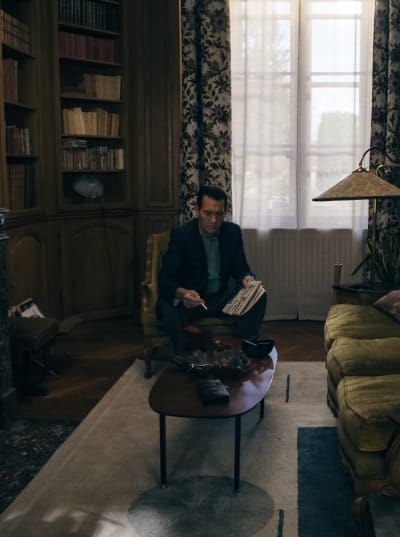
Is there a particular aspect of Sam Spade’s character or story that resonates with you personally?
I’m just a huge fan of that kind of genre and that kind of character, really. I love those forties films. I’m a huge fan of Bogart, and I’ve always loved him as an actor.
The thing about Bogart is that he never sort of over milks things. He never overindulges.
If you see him, even in the big romantic films, there’s a sort of restraint about him, and he lets whatever’s going on do the work and doesn’t sort of push it too much. And that’s something that I’m really attracted by and that’s why I’m such a fan of his, really.
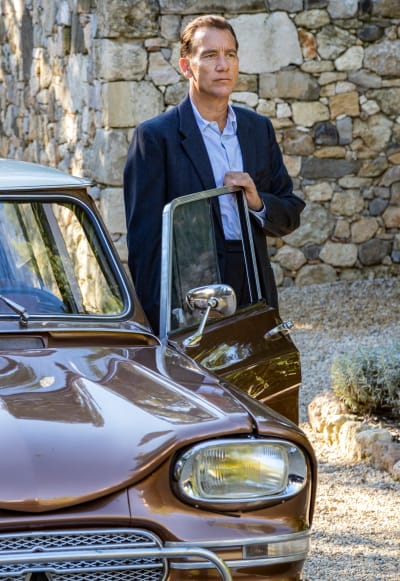
And this character is not very emotional. So you get to play with your facial expressions very infrequently. You kind of have the same look with very nuanced changes.
Is it challenging as an actor not to use your expressions as much as you would with another character?
But that’s kind of, again, to do with the restraint of who Sam Spade is, really. And it’s not to say that he’s not emotional; it’s just that you are not telegraphing or showing it all the time. There is a kind of reserve.
But what you do need, and what’s essential, is to have really good writing to be able to do that because then you can just sit and let his dialogue do its work. It’s very hard to do that if you haven’t got really, really good writing.
But when you’ve got great writing, you trust the material. You have to do it with a sense of restraint because if you get too much on the front foot and are too demonstrating everything, that’s just not Sam Spade.
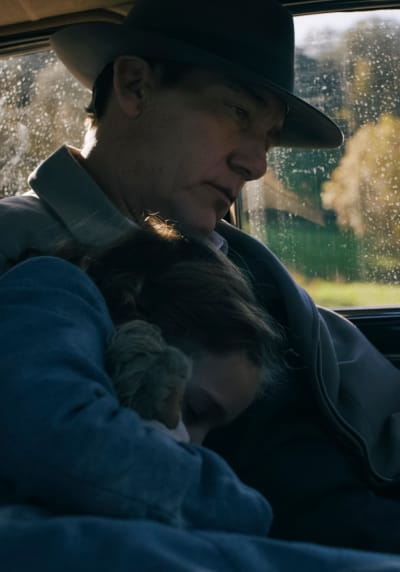
You get to do a little bit of acting with your eyes, too, because there were certain situations where, even though he was flat, you know that he was not emotionally unaware. You could see it on your face, even though you couldn’t see it on your face, if that makes sense.
Exactly. But again, you need somebody who’s directing it who knows when to come in and do that and show you that. So again, you’ve got to trust. I was just very lucky that Scott is both a top writer and a top director.
What do you think will surprise fans of Sam Spade and his stories in this new series?
I think that because of where it’s set in early sixties French, it’s a real sort of beautiful marriage of two worlds. You’ve got a character that you classically, forties and fifties, that is thrown into sort of very cool French sixties.
And also, Scott, I rate him so highly in both directing and writing that it’s a joy when you’ve got dialogue, both for me to be in it and to act it, but also for audiences to drink in because he’s so quick-witted and clever that the thing just crackles along.
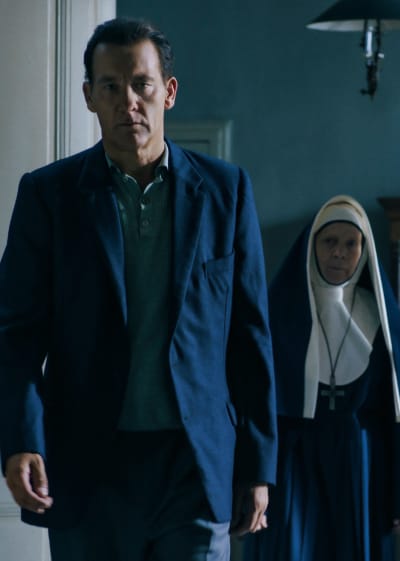
In what ways do you think that this version of Sam Spade is relevant to modern audiences?
I think that those iconic characters, like Spade and Marlowe and things like that, have stood the test of time, and you just need to find a fresh way of showing them.
There’ll be a world of people who don’t know Sam Spade and who don’t know Raymond Shannon and Philip Marlowe.
And to be able to do something in a very cool, modern way but still keep faithful to that original source material, I think, is really exciting.
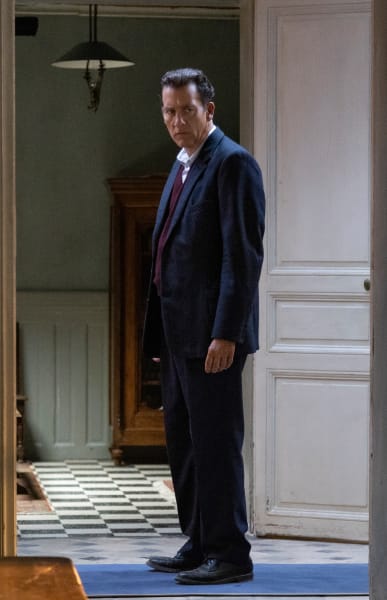
And how do you hope that this portrayal of Sam Spade will contribute to the legacy of the iconic character?
That’s out of my hands, really. I just went in there and tried to be as faithful to the character that Dashiell Hammett wrote and just worked in terms of how it stands up; that’s for other people to judge.
It’s not something that I was necessarily concerned with when I was doing it. I was just trying to do the best job, really.
If you could step into another iconic character’s shoes, who would they be?
This actually is as good as it gets for me, really, to play this part.
Monsieur Spade premieres Sunday, January 14, on AMC and AMC+ at 9/8c and will be replayed later on Sundance and AMC.
Edit Delete
Carissa Pavlica is the managing editor and a staff writer and critic for TV Fanatic. She’s a member of the Critic’s Choice Association, enjoys mentoring writers, conversing with cats, and passionately discussing the nuances of television and film with anyone who will listen. Follow her on X and email her here at TV Fanatic.


